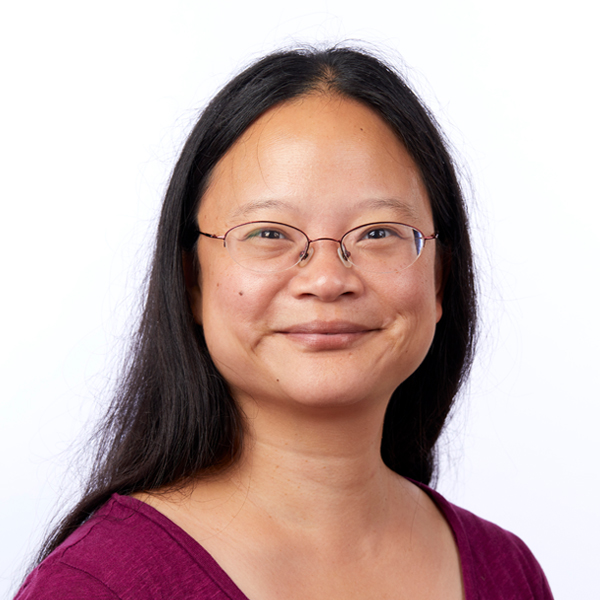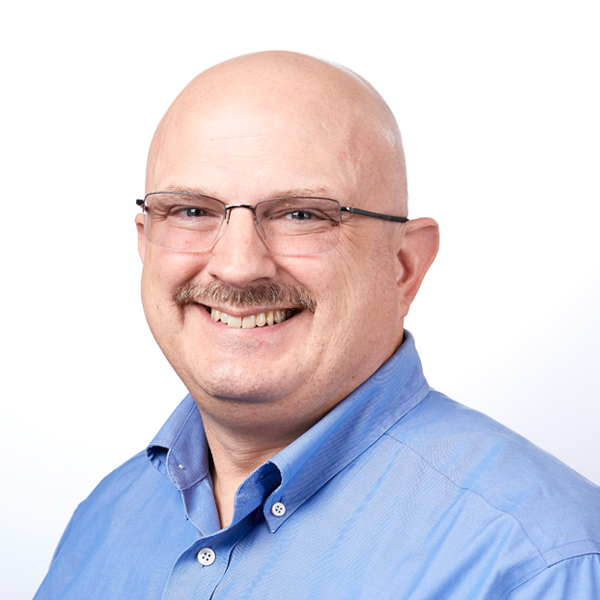BEDAC Helps Researchers Navigate the Shoals of Big Data.

BEDAC Helps Researchers Navigate the Shoals of Big Data
The Biostatistics and Epidemiology Data Analytics Center has been a guiding influence on Boston University research for nearly four decades
For nearly 37 years, a quietly efficient and mostly unheralded corps of analysts, programmers, and data managers have used their computational muscle to guide researchers through thickets of study design, electronic data collection and tracking, statistical analysis – and the all-important and ultimately bedeviling elements of quality management.
The Biostatistics and Epidemiology Data Analytics Center (BEDAC) has its roots in the Data Coordinating Center (DCC), which launched in 1984 as a data management and statistical analysis resource center. To properly frame that genesis into perspective, in the same year, the Apple Macintosh personal computer made its iconic debut, and Bruce Springsteen’s album “Born in the USA” became the first compact disc produced in the USA.
Then, and for decades after, the primary mission of the DCC was to assist public health researchers from Boston University, Boston Medical Center, and other research entities with a variety of services.

“Originally, our center focused on performing data management, study monitoring, and statistical analysis and reporting in support of BU and external investigators,” says Kimberly Dukes, executive director of BEDAC and a research associate professor of biostatistics at the School of Public Health.
These are all the nuanced, deep-in-the-weeds components of studies that can make or break outcomes and reputations, which is why researchers welcome the patient competence of BEDAC experts.
As a service center, BEDAC offers a one-stop shop, says Clara Chen, assistant director of operations. The team is adept at handling “everything from survey development to creating data collection systems, providing ongoing data management and reporting, analyzing data, writing manuscripts, and presenting results. We’re happy to help with anything from a specific, targeted part of an investigator’s research project to the entire grant life cycle,” Chen says.
That flexibility and multi-faceted approach has enabled BEDAC to collaborate on hundreds of research projects, including several multi-site and international clinical trials and observational studies, in myriad subject areas including HIV/AIDS, tuberculosis, addiction, environmental exposures, maternal and child health, and more.
Michael Winter, associate director of statistical programing at BEDAC, says the center’s work with investigators from BMC’s Clinical Addiction Research & Education (CARE) Unit, including Drs. Jeffrey Samet and Richard Saitz, truly stand out for him. “BEDAC has collaborated on many projects with research teams from the CARE Unit for over 25 years, work that has focused on studying, treating, and reducing addiction in Boston and other countries, including Russia and Uganda,” Winter says. “These projects benefit from BEDAC’s long experience in the unique challenges of collecting, managing, and analyzing addiction-related data.”
In addition to a steady flow of internal collaborations, in recent years BEDAC has successfully landed two large projects that have helped propel an internal surge of growth in multiple areas.

BEDAC is providing data management, data visualization, statistical analysis and other critical functions for the HEALing Communities Study, described as a multi-site implementation research study designed to test the impact of evidence-based practices across health care, behavioral health, justice, and other community-based settings in the reduction of opioid-related overdose deaths. The study is a key component of a National Institutes of Health portfolio to translate research into practice.
Sharecare, a digital health company with access to a spectrum of survey data from across the US, enlisted BEDAC’s computational prowess to create an insightful nationwide Community Well-Being Index (CWBI). The Community Well-Being Index is comprised of two inter-related concepts: the Well-Being Index and the Social Determinants of Health Index. These two indices are combined into a single score that represents self-reported individual health-related behaviors and perceptions incorporating the individual’s living environment.
The CWBI represents the most comprehensive assessment of community health and well-being in the country. The 2020 report is based on more than 450,000 respondent reports of well-being combined with 17 county-level social determinants of health measures that include: healthcare access, food access, resource access, housing and transportation, and economic security. The result: a state-by-state ranking that showed that in spite of the pandemic, Massachusetts had emerged as the state with the overall best community well-being.
“These two projects were the largest ever for BEDAC,” Dukes said. “We’ve had to expand our capabilities to include incorporating advanced statistical and geospatial methods, automating the data life cycle processes and statistical reporting, and embracing big data approaches such as machine learning. Enhancing our project management capabilities were also a necessity in order to provide a solid foundation for communication, setting of expectations and monitoring timelines and scope of work for large cross-functional teams so that substantive and technical experts could focus on what they do best.”
Over the past several years, the project management team has really helped the center gel along with the formalization of our quality management framework, Dukes says, with a bonus carryover effect that each BEDAC team member is “able to focus on their strengths, while continuing to deliver high-quality products using essential procedures and guidelines to ensure compliance with requirements.
“BEDAC’s breadth of experience make it an ideal research partner, particularly when coupled with the ability to address gaps within a research partner’s group – whether that be technical assistance in project management and data management activities such as creating data collection systems, or providing statistical analysis in support of publications,” says Chen.

Winter echoes that assessment, saying, “I think one of the biggest benefits of working with BEDAC is the breadth of services we can offer researchers – everything from assistance with grant preparation, design and set-up of data collection systems, data management and reporting, and statistical analysis – in one center.”
This approach is designed to both generate confidence among investigators and enhance the teamwork within the center. Winter, who has helped guide the direction of BEDAC since 1987, says several areas of expertise make the center a valuable partner for researchers.
“BEDAC has highly skilled statistical programmers, many with more than 10 years of experience, who can work closely with researchers to manipulate datasets and implement analytic plans to answer study questions,” Winter says, while other benefits may not be as quantifiable but are just as important. “BEDAC fosters a collegial, collaborative work environment so that a researcher working on a particular project with one or two BEDAC staff members in effect has access to the experience and knowledge of the whole BEDAC team.”
Although BEDAC has supported hundreds of smaller projects, Chen says the longer-term projects stand out for her, the long-lived research collaborations where team members have built strong relationships with investigators and continue to work with them for decades.
“We’re proud to have worked with Children’s HealthWatch for more than 20 years, collecting and analyzing repeated cross-sectional surveys of families with young children that are facing economic hardship – producing results that inform policy at a local and national level,” Chen says. BEDAC has worked with the BU Center for Innovation in Social Work & Health on at least six projects funded by the Health Resources and Services Administration, creating data collection systems and providing analytic support for ventures aimed at improving access to HIV care, housing, and employment for various underserved populations of people living with HIV, Chen says.
BEDAC is the data management and statistics core of the BU Alzheimer’s Disease Research Center and is instrumental in Chronic Traumatic Encephalopathy research, Gulf War Illness research, opioid and alcohol addiction research, breast cancer research – the list goes on and on, Chen says.
And what may still be unheralded is the fact that BEDAC is currently the custodian of a vast data warehouse containing health and wellness data from across the US consisting of more than 1,000 variables available at the Census tract level.
“We are continuing to build this data warehouse and measures of social determinants of health,” Dukes says. She hopes this wealth of data, coupled with the center’s expertise in analyzing it, will serve BU investigators and enable BEDAC to seek grants on its own, including those set aside for large data coordinating centers.
In closing Dukes writes, “Although myself, Michael Winters and Clara Chen have been highlighted in this article, we have a talented, diligent and creative team of individuals at the center who have helped frame the direction and the work of BEDAC since its inception. Over the past few years we have added core competencies and hired technical experts in an effort to stay abreast with current research trends and technologies while we continue to build on our quality management framework. We have formally created business development, project management and data science teams and we will continue to evolve. We look forward expanding our partnerships with BU investigators.”
Comments & Discussion
Boston University moderates comments to facilitate an informed, substantive, civil conversation. Abusive, profane, self-promotional, misleading, incoherent or off-topic comments will be rejected. Moderators are staffed during regular business hours (EST) and can only accept comments written in English. Statistics or facts must include a citation or a link to the citation.